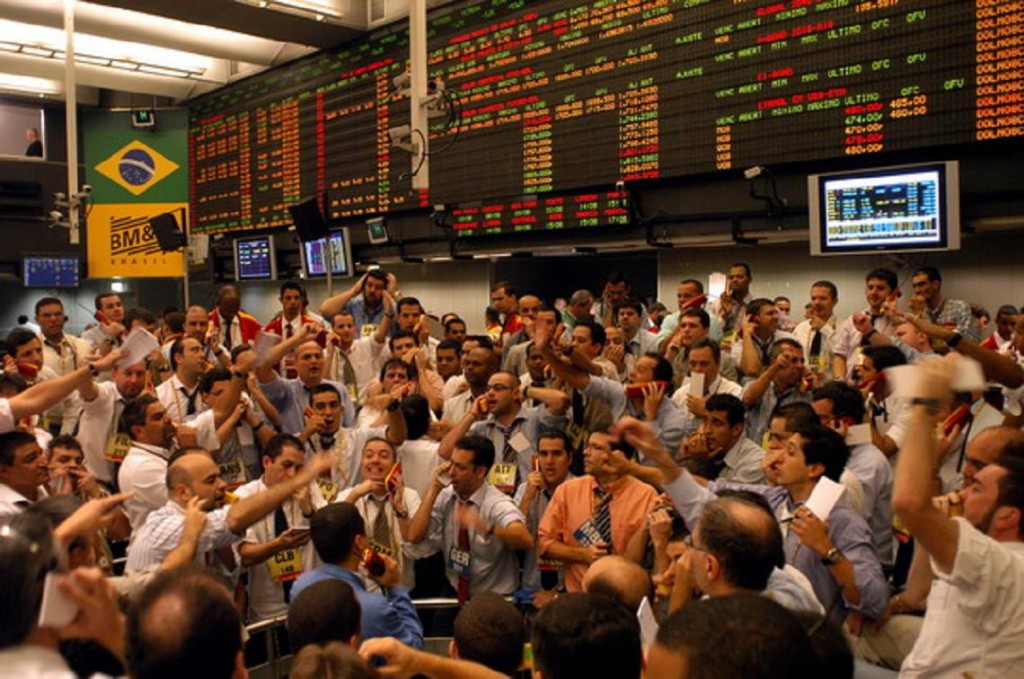
The stock exchange of Brazil in San Paulo.
La borsa di San Paolo.
Photo Christian Tragni
With a highly charged political drama in the backdrop, the Brazil stock market has been one of the best performers this year. The benchmark Ibovespa is up 14.5% year to date (as of Mar 11, 2016). This rebound in Brazil after a disappointing 2015 can be attributed to improving commodity prices and a new round of speculations regarding a change in government.
Brazil relies heavily on export to fuel its economic growth. As per data from International Monetary Fund’s World Economic Outlook Database, Brazil’s total Gross Domestic Product amounted to $3.208 trillion in 2015 out of which exports accounted for approximately 6% of the output. The country exports commodities like oil, iron, steel, soy and coffee. With oil prices stabilizing after hitting rock bottom and iron ore and soybean prices up this year, Brazilian exports look poised for a comeback.
Meanwhile, turmoil on the political front continues. Speculations that President Dilma Rousseff will be impeached were afoot after her predecessor and mentor, Luiz Inacio Lula da Silva, was taken into custody for questioning related to a corruption probe. Investors in favor of a change in government believe that new leadership could be in a better position to revive the battered economy.
The Brazilian economy has been bearing the brunt of economic slowdown and an endless streak of corruption scandals for some time now. A new government could infuse a fresh lease of life into the ailing economy which otherwise is expected to contract for a second straight year in 2016. After shrinking 3.9% in 2015, the economy is expected to contract by 3.5% this year.
Apart from that, markets were also buoyed by potential rate cuts by Brazil’s central bank. Although in its meeting earlier this month, the central bank kept the benchmark Selic rate at 14.25%, several analysts are of the view that inflation would peak at around the end of the first quarter, which could lead the central bank to consider lowering interest rates later in the year. A rate cut could help boost consumer and corporate spending and bring cash to equities from safer fixed income alternative.